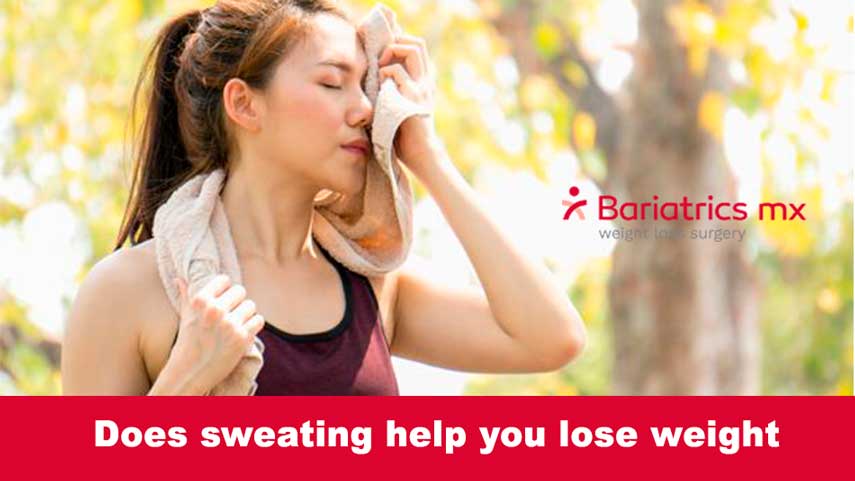Does sweating actually make you lose weight?
You’ve probably heard it a thousand times: “Just sweat it out!” It’s a phrase that makes us think that the more we sweat, the more weight we’re losing. I mean, who hasn’t felt a bit triumphant after a particularly sweaty workout session, seeing all that moisture as proof of effort? But does all that sweat actually mean you’re losing weight—especially the kind of weight that stays off? Not exactly.
Sweating can lead to a drop on the scale, but it’s really just water weight that disappears when you rehydrate. So, while it might feel like progress in the moment, that sweaty glow doesn’t necessarily mean you’re burning off fat.
How sweat contributes to weight loss temporarily
Think about those times when you’ve spent a good chunk of time in a sauna or after an intense spin class—you step on the scale, and voilà! A pound or two lighter. It feels good, but here’s the catch: most of that weight loss is just from losing water through sweat. This is why athletes, like boxers, often sweat it out right before a weigh-in. They know those lost pounds are temporary and will come back as soon as they drink water.
It’s a bit like squeezing a sponge. Sure, you can get rid of some of the water inside, but once you put it back in the sink, it soaks up more water again. That’s what your body does with sweat—it’s just a temporary dip in your weight, not the long-term fat loss that many of us are after.
The science behind sweating: Understanding thermoregulation
Sweating is really our body’s built-in air conditioner. When you’re working out or when it’s hot outside, your body heats up, and your sweat glands go to work, releasing moisture onto your skin. As the sweat evaporates, it cools you down—kind of like when you blow on hot soup to make it less scalding. This process is called thermoregulation, and it’s essential for keeping your internal temperature in check.
But here’s the thing: the amount you sweat can depend on a lot of factors—how hot it is, how hard you’re working out, or even just how your body naturally handles heat. And more sweat doesn’t necessarily mean more calories burned. Some folks just sweat more than others, and that’s perfectly normal.
Why sweating doesn’t burn fat directly
It’s easy to link sweat with weight loss because the two often happen together. But sweating itself doesn’t burn fat. It’s more like the sidekick, not the hero, of weight loss. The real key to shedding pounds is creating a calorie deficit—burning more calories than you take in. This means that even if you’re dripping with sweat after a run, what matters most is the energy you used during the workout, not the sweat that came with it.
Think about it this way: you could sit in a steam room and sweat buckets, but that doesn’t mean you’re burning the same calories as when you’re doing a 30-minute run or a HIIT session. The steam room might make you sweat more, but it’s not burning the energy (or calories) that exercise does.
How exercise helps you burn calories, not sweat
Exercise is all about moving your body and getting your muscles working. When you’re lifting weights, running, or doing a HIIT workout, your body taps into its energy stores to keep up with the effort. This process burns calories and, over time, helps to reduce body fat. Yes, you might sweat more during intense exercise, but it’s the work your muscles are doing that’s really making the difference.
For example, you could take a walk in a cool environment and barely break a sweat, but you’re still burning calories. On the other hand, you might sweat a lot in a hot yoga class, but the calorie burn isn’t necessarily higher just because you’re hotter. What really counts is how long and how hard you’re working your muscles, not the sweat itself.
Staying hydrated: key to effective workouts
Keeping yourself hydrated is crucial for getting the most out of your workouts. When your body gets dehydrated, it struggles to keep up, and you might find yourself feeling tired or cramping up sooner than you’d like. Drinking water throughout your day, especially before and after a workout, helps keep everything in balance.
You don’t need to reach for fancy sports drinks unless you’re doing a long and sweaty workout. For most of us, plain old water is enough. Think of it as fuel for your muscles and your mind—it keeps everything working smoothly, even when your workout gets intense.
The role of sweating in different weight loss strategies
Some weight loss fads put a lot of emphasis on sweating—saunas, steam rooms, sweat suits… you name it. These methods might help you drop a pound or two, but that’s really just your body shedding some extra water. As soon as you have a drink, those lost pounds tend to come right back.
That’s why a sauna session can feel great after a workout (it’s super relaxing and can help with muscle recovery), but it’s not going to make a lasting difference in your weight loss journey. Sweat suits can even be dangerous if used improperly, potentially leading to dehydration or heatstroke. When it comes to losing fat, it’s better to focus on activities that build up your fitness and strength over time.
Myths about sweating and weight loss
Let’s clear up some common myths. One big one is that “if you’re not sweating, you’re not working hard enough.” But that’s not true—plenty of effective exercises don’t make you sweat buckets, especially if you’re working out in a cool space or focusing on things like strength training.
Another myth is that more sweat means you’re burning more calories. Sure, a sweaty session can make you feel like you’ve put in the work, but sweat alone isn’t a reliable measure of how much energy you’ve used. It’s more about the effort and consistency you put into each workout session.
How to optimize your workouts without relying on sweat
Instead of focusing on how much you sweat, think about the quality of your workouts. Mixing things up with different types of exercise—like strength training, cardio, and flexibility work—can keep your body challenged and help you burn more calories overall.
Using a heart rate monitor can also give you a better sense of how hard you’re working. This way, you can make sure you’re staying in that sweet spot where you’re challenging yourself, without overdoing it. Remember, consistency is key. It’s those regular, well-rounded workouts that make the biggest difference in the long run—not how drenched your shirt gets.
Final thoughts on sweating and weight loss
At the end of the day, sweating is just part of how your body keeps cool. It can make you feel like you’ve worked hard, and it definitely plays a role in staying comfortable during exercise, but it’s not the magic key to dropping pounds. True weight loss comes from finding a balance between eating right and keeping active.
So, next time you’re working out, don’t focus too much on how sweaty you get. Focus on how you feel, the progress you’re making, and how each session is getting you closer to your fitness goals. It’s the small, consistent steps that add up over time, and that’s where you’ll see the real results.









